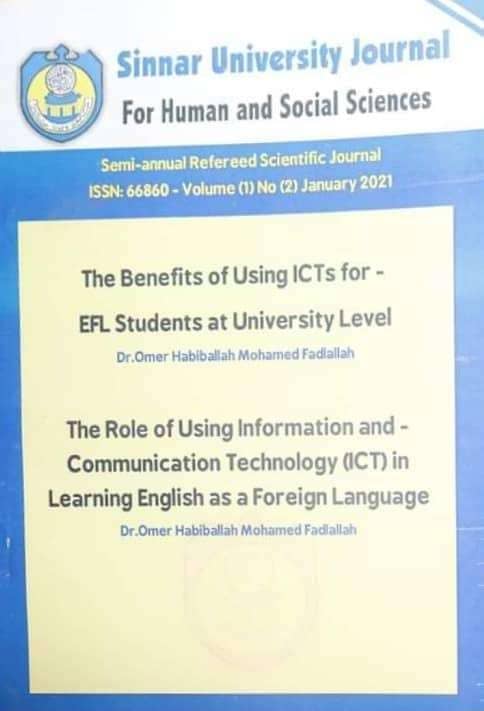Prison literature in the poetry of Al-Hambata in Sudan Descriptive analytical study
Abstract
Abstract:The Prison Literature in the Hambata Poetry in the Sudan (Hambata was a group of Sudanese poets who were similar to the saalik Poets of the Pre- Islamic Period.
This research aimed to study the literature of the Hambata poets and to know their psychological conditions and sufferings through their poetry and literature when they were in prison. It also aims to study their most important moral and social values in their poetry and literature. The importance of this study stems from the comparison of the Hambata poets with the Saalik Poets of the pre-Islamic Period. The study includes the study of literature written in the prison through models taken from the pre- Islamic Period till the modern age. The researcher has used the descriptive methodology, in describing and analyzing this phenomenon. The researcher has reached a number of findings. Among which is that poetry written in the prison is the most since purpose of poetry and the nearest in describing the psychological conditions of the poet. The Hambata poets had proved bearing (pain and suffering) patiently in prison. Moreover, the prison did n’t deter them from practicing their favorable hobby which was Hambeta (Robbery). Sometimes the poet used to yearn in his prison for the lives of freedom, Hambeta and dancing parties. The researcher concludes his research with a number of recommendations. Among which is the study of the educational and moral values which the Hambata poets in Sudan called for. Also the necessity of studying the psychological and social origins of the Hambeta phenomenon. Moreover, The researcher recommends that the linguists should do research on the language and words of the Hambata poets because they are fertile fields for linguistic and contrastive studies.





